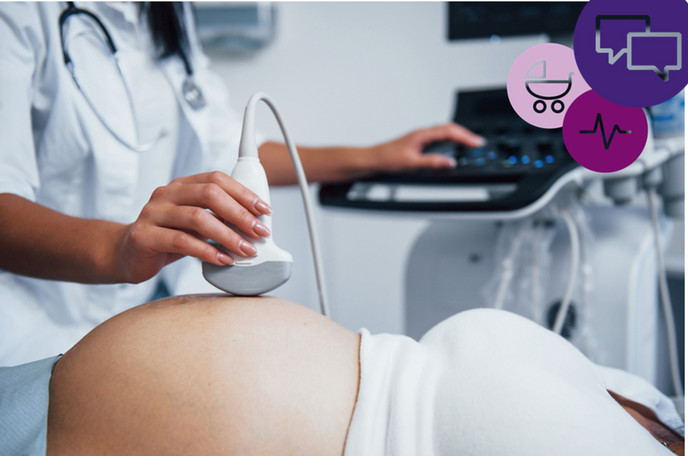
Ultrasound scans are common, and we understand the NHS typically uses them at least twice during a normal, uncomplicated pregnancy. The first scan is normally done from 10-14 weeks to establish the number and position of the foetuses and the due date. The second scan (between 18-21 weeks) checks on the physical development of the baby and looks for potential anomalies.
A Reassurance Scan and/or Wellbeing Check are a type of pregnancy ultrasound service which are offered by some private clinics. The service typically involves an extended consultation (including an ultrasound scan) with the intention of allowing parents-to-be to discuss concerns and anxieties about their pregnancy. These scans have been presented as being available for babies from 7 to 8 weeks.
Be clear what you are offering
Marketers of clinics offering Reassurance Scans or Wellbeing Checks should be mindful of the language they use in ads, to ensure that parents-to-be are aware of what information the scans can reasonably provide. Unqualified references to a “Reassurance scan” or a “Wellbeing check”, or statements that refer to “the health of your baby” or “normal progress” [of the baby] are likely to be considered ambiguous and misleading as to the extent of information that can be obtained from the scan, particularly in the early stages of pregnancy.
The rulings also touched on the positive connotation of the term “reassurance” when used in isolation, when the ultrasound scans could only provide information about the specific moment of pregnancy in which it took place.
It is recommended that ads which refer to “wellbeing” or “reassurance” (or similar claims) in the context of pregnancy scans, include clear information about what those scans (and any extended consultation) can assess at the different stages of pregnancy.
Don’t exaggerate the benefits of scans in early pregnancy
The ASA investigations found that the scans being offered by the two clinics were being advertised as available in relation to babies from 7 or 8 weeks up to full term. Whilst it may be the case that the scans can be used to establish the position of the baby and a likely birth date at 7-8 weeks, the ASA rulings indicate that there not much more information that could be gleaned about the health or the physical development of the baby from an ultrasound or other assessment at this very early stage of pregnancy.
Marketers are therefore advised to avoid suggesting that the scans can establish “reassurance” or determine the “wellbeing” of the baby in the early stages of pregnancy.
If you’d like a us to scan your content for reassurance that your non-broadcasting advertising is compliant, feel free to submit an enquiry to our Copy Advice team.
More on
-
Keep up to date
Sign up to our rulings, newsletters and emargoed access for Press. Subscribe now.


